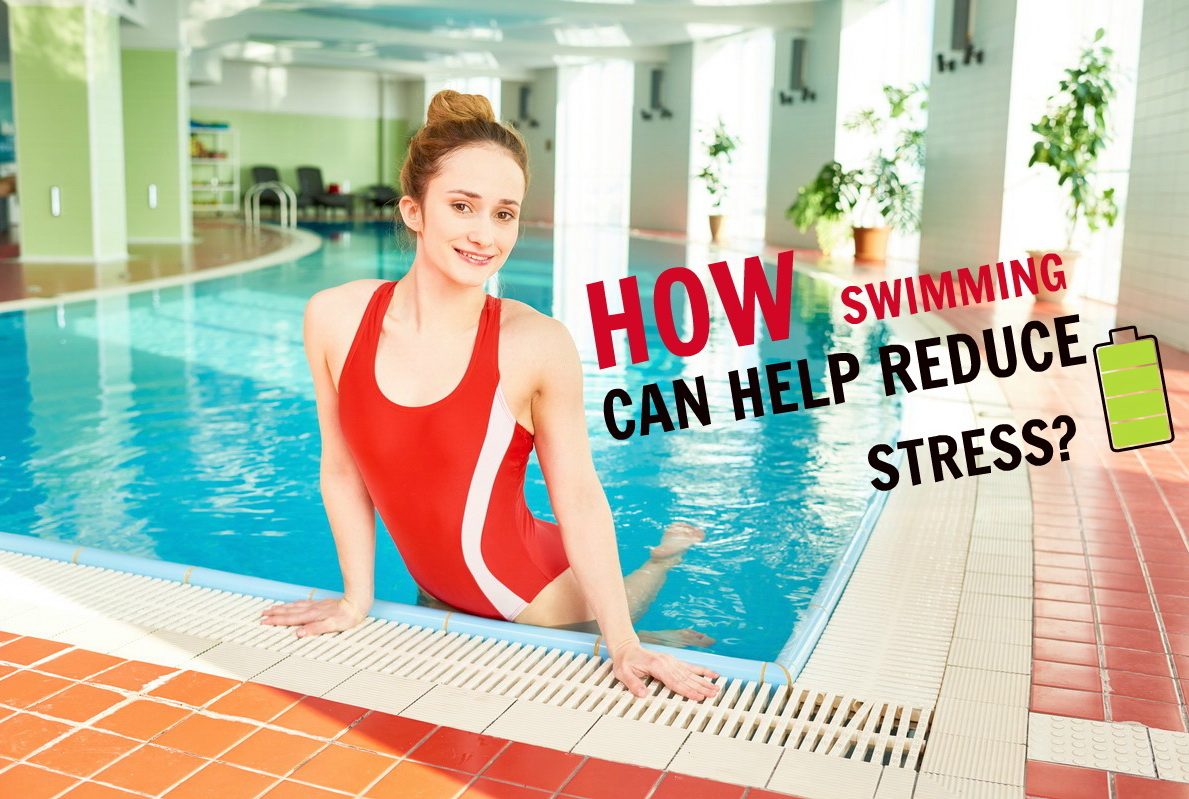There is a reason why millions of people flock to the beaches as soon as the temperatures start rising. For some it is the warm ocean breeze, for others it is the soft crashing of waves on the shore or even just floating along with the currents. Either way, the common element is water. There seems to be something inherently relaxing about a hot summer’s day spent by the water – be it sea, lake or river. How swimming can help reduce stress? Swimming combines the known benefits of physical activity on mental health, with the soothing experience of being in the presence of water. In sum, it is an ideal stress reliever.
If you have been struggling to decompress and relax, here are the different ways how swimming can help reduce stress:
-
Improve your focus
Swimming calls upon full body coordination to get you from one side of the pool to the next. From arm pulls and rotations, to leg kicks and timed breathing, there are a lot of things to think about when you are swimming. Drawing in on such concentration can help recentre your thoughts by focusing your attention on your movements and technique.
Your swim strokes also establish a regular rhythm which many find relaxing and useful for a moment of peaceful meditation. This can also help kids who might be struggling to concentrate at school by teaching them to focus on one particular activity at a time.
Being in such direct contact with the water also allows you to immerse yourself into another world, far from the traffic noises and daily rush outside. Swimming pools usually benefit from great acoustics which can also help soothe the mind via more muted sounds.
-
How swimming can help reduce stress by boosting your endorphin levels
Swimming on a regular basis, be it for a few hours or just half an hour, has been shown to reduce levels of anxiety and depression through the release of endorphins. Like most forms of exercise, swimming promotes the release of such hormones which act positively on the brain to bring about a greater sense of wellbeing and general happiness.
As you swim your laps, your raised heart rate and blood flow pumps these endorphins throughout your body for you to step out of the pool feeling much more relaxed.
-
Regulate your sleeping
If you are constantly running after your next deadline, raking your brain about a new project, or worrying about all the phone calls you need to make, a peaceful night’s sleep can quickly fall to the bottom of your priorities.
With thoughts flying around in your head, falling asleep can be difficult for adults and children alike. It still remains, that in order to be the best functioning version of yourself, sleep is important.
As a full body workout, swimming not only helps you stay active, but also exerts you physically. Your body’s need for rest will aid you in falling asleep more quickly and deeply as your muscles recover from their day’s hard work.
-
Engage with a new community
Whilst swimming in itself might be an individual sport, this does not mean that it needs to be done all alone. Swimming can be a great opportunity to join a community of people with interests which remain shared but aren’t necessarily focused on work or chores.
Socialising is a great way to relieve stress and stay motivated to pursue swimming by joining a new course, competing in a competition or simply sharing a quick lunch after your swimming session.
-
A change of scenery
Living in London comes with many a cloudy skies and rainy days. Luckily, escaping such grey washed weather is no harder than a trip to your local swimming pool.
Even though blue skies seem to be particularly evasive around this time of the year, blue spaces can help you recover the illusion of a beautiful summer’s day and soothe your stress. Whether you are looking for a bit of warmth and humidity, or just a change of colour, swimming pools offer a great refuge for these frosty autumn mornings.
Summary of how swimming can help reduce stress?
Swimming has been shown to help reduce stress in a number of ways, but it can nevertheless become a source of stress for certain swimmers. If you have been away from the pool for quite some time or feel insecure about your current swimming level, jumping straight back into the pool might sound more stressful than peaceful.
A personal swimming instructor can help you gain confidence in your swimming ability by helping you feel at ease in the water and teaching you the correct techniques for a safe swim. With years of professional teaching experience, Adam from Going Swimmingly London teaches people of all ages how to improve their swimming in a relaxed and friendly environment.

